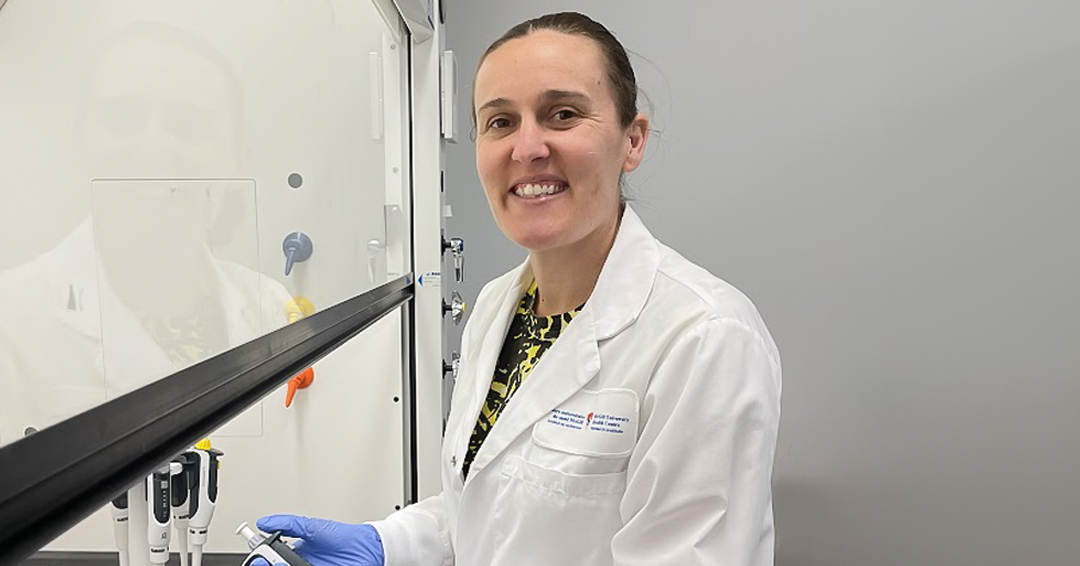
New funding supports an international collaboration to improve early diagnosis and treatment of neurodegenerative diseases
Darcy Wagner, PhD, Canada Excellence Research Chair (CERC) in Lung Regenerative Medicine at McGill University, has been awarded a prestigious grant from the EU Joint Programme – Neurodegenerative Disease Research (JPND), the world’s largest collaborative initiative supporting research on neurodegenerative diseases.
A senior scientist in the Translational Research in Respiratory Diseases Program at The Research Institute of the McGill University Health Centre (The Institute), Prof. Wagner is one of only three Canadian researchers selected in this year’s highly competitive funding cycle. This program fosters international collaboration to accelerate discoveries in early diagnosis, treatment, and patient care.

Prof. Wagner’s team will contribute to a groundbreaking multinational project led by Oxana Klementieva (Lund University, Sweden), alongside collaborators Martin Becker (University of Rostock, Germany) and Aleksandra Szczepankiewicz (Poznan University of Medical Sciences, Poland). The project will integrate multimodal molecular imaging with artificial intelligence to identify pathological amyloid structures in their native environments. By improving detection of these key markers of neurodegenerative diseases, the research could lead to earlier diagnoses and new therapeutic interventions.
Prof. Wagner’s selection for this competitive award underscores the strength of Canadian leadership in neurodegenerative disease research as well as state-of-the-art imaging. Her work, in collaboration with leading European scientists, will contribute to JPND’s mission of enhancing scientific understanding, improving diagnostic tools, and advancing care strategies for patients worldwide.
Prof. Wagner will lead efforts to build new specialized chambers for live imaging of human brain tissue organoids generated from induced pluripotent stem cells. This approach allows researchers to study amyloid plaque formation and potential therapies in real-time.
She previously collaborated with Oxana Klementieva’s lab (Gvazava et al. J Am Chem Society 2023) to develop a non-invasive, label free method for detecting amyloid plaque formation. Building on this work, her team in Canada will enhance the technique using light-sheet fluorescence microscopy, enabling high-resolution visualization of amyloid plaques in living 3D tissue.
For more information about the JPND funding program, visit JPND’s official website.
Related News
After a tragic loss, a career devoted to organ regeneration
Meet Darcy Wagner, a bioengineer with big dreams for respiratory care
